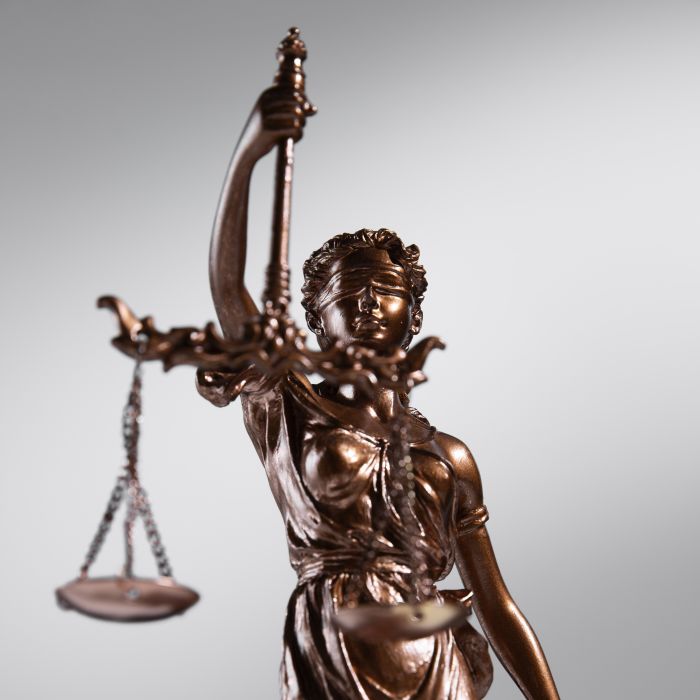I’ve found purpose through filing lawsuits for myself and my peers.
I had just turned 19 years old when I entered Washington state’s prison system in the spring of 1995. A recent high school graduate, I was planning on starting community college in the coming months. I had a positive future ahead of me.
After my arrest, despite being a teenager — and looking even younger than my age — I was housed in an adult county jail for a murder charge. In that jail, I was introduced to the harsh reality of life on the inside. It didn’t take long for a predator to take advantage of my kindness, and youthful appearance.
There was no safe space for a youth like me. I never knew when the next attack would come. I had to learn how to navigate this new, dangerous space — and be involved in things I’m not ready to speak about — just to survive.
I’m proud to say I made it through those times and have now survived 30 years in prison. To do so, I’ve had to rely on my love of problem-solving. Behind bars, I’ve utilized every educational resource I could find. In particular, studying law and constitutional history has excited me. It has brought me peace while living in a storm.
As long as I can focus on another person’s legal issues, or a complex legal argument, I don’t have to face the reality that I am also living in hell. By reading numerous law books and legal briefs, I have become quite good at understanding complex legal arguments.
This work also helped me to survive because some of my clients were big and tough — and helped keep predators away.
Litigating against the state and federal government, without the funds to hire a lawyer, is difficult, if not impossible, to do on your own as a free person. Now, imagine how hard it is while incarcerated. You have no freedom to move about when you want, no access to the internet, and limited time to visit the law library. Worse, prison lawyers are dependent upon the corrections department they are suing for access to legal resources.
Prison systems create barriers to prevent access to the courts or to a prison law library, because the less law work we can do, the better for them. The state often finds creative and subtle ways to cancel our access to the law library, often citing safety or security as a blanket reason.
In 2023, the Washington State Department of Corrections expanded access for prisoners to use the legal research tool LexisNexis, using our Securus electronic tablets. However, Lexis is an advanced research tool designed for experienced lawyers and judges, not beginners. Many prisoners get discouraged by the tool and don’t use it.
In civil litigation, an incarcerated person seldom makes it past the early stages of a lawsuit because they have no formal litigation training and are attempting to navigate a justice system that is generally anti-prisoner. They may run into retaliation from the prison system, as I have, that could stop them from filing a lawsuit. Also, the judge may have open animosity against prisoners who file suit against the DOC.
Even if all the above were not true, it would still be very difficult — if not overwhelming — for a new litigator to file suit on their own, without an experienced attorney representing them. It took me a few times to win an Eighth Amendment case — which prohibits excessive bail, excessive fines, and cruel and unusual punishment — and I ultimately needed the help of an outside attorney to do so.
In my first attempt, I mostly failed because of my inexperience. I worked without any co-counsel and had a hard time meeting the court-imposed deadlines — although I was eventually awarded a few thousand dollars through a settlement. In my second case, which was voluntarily dismissed, I also struggled without the help of an outside attorney. In my third case, I got a positive result — getting an infraction wiped off my record — though I did not consider this a win since I wasn’t awarded a settlement.
It wasn’t until my fourth try that I successfully won an Eighth Amendment claim — with the help of an outside attorney. My claim centered on the lack of health care I could get in my prison. Specifically, it dealt with a lack of transgender health care in Washington state prisons.
I’m a proud trans woman, an elder in the LGBTQ+ community both in and outside prison walls, and I’ve dedicated my life to helping community members with their individual or collective concerns. This case — Sutton v. Hathaway, tried in the U.S. District Court Western District in Seattle — dealt with a long delay in providing me medical care, which hurt my overall health.
Without my private attorney, I wouldn’t have been able to hire a medical expert to prove the harm done to me by DOC. Having a private attorney on board made the difference between failure and success.
Since 2004, I have filed at least 12 separate lawsuits against the state DOC, and in all this time I’ve gained valuable knowledge and experience. I’m now working to become a paralegal through the mail. One day, I hope to work for a law firm or for an attorney who would hire a prisoner such as myself, either while incarcerated or soon after my release.
